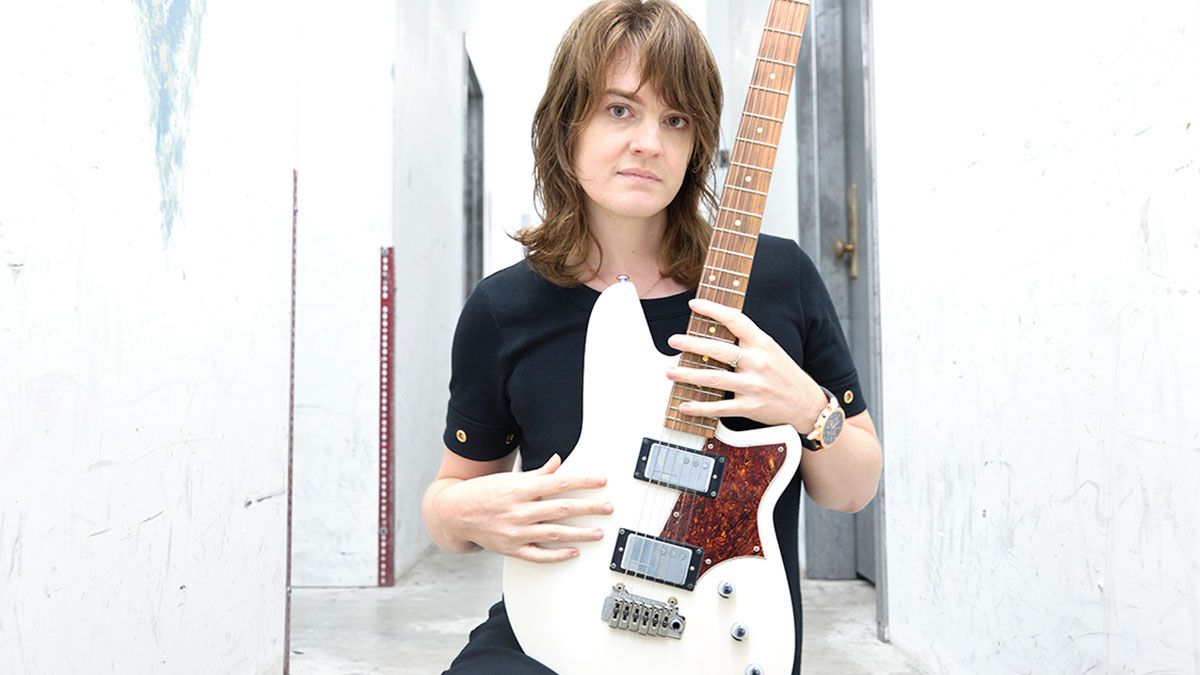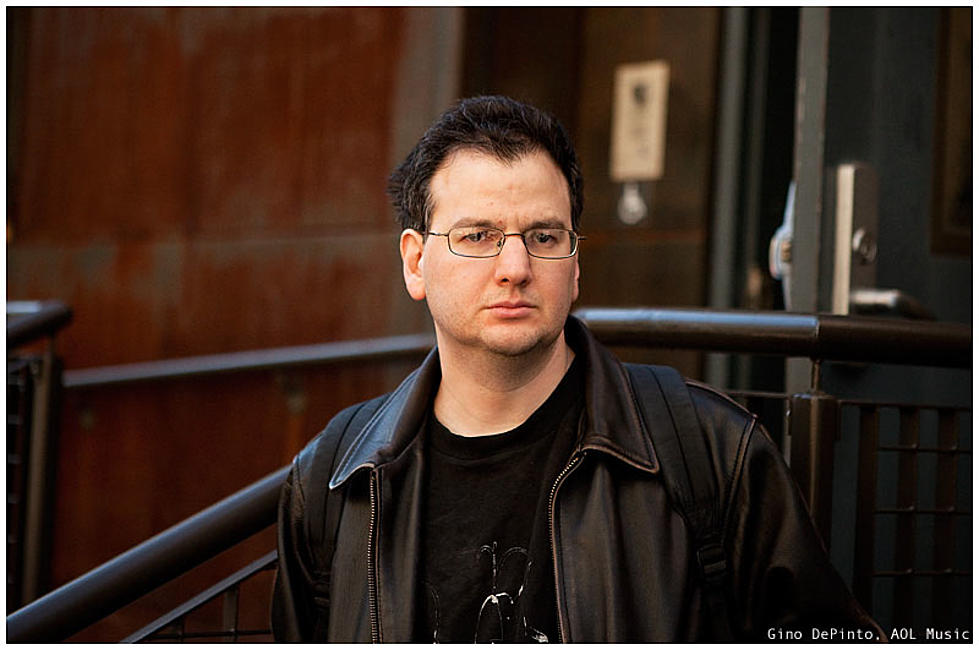Christian themes, riffs as pretty as they are violent and chords above the 12th fret: how Liturgy’s Haela Ravenna Hunt-Hendrix is radically warping black metal conventions
Hunt-Hendrix thinks of Liturgy as “orchestral music created with the tools of a metal band“, and with violin-inspired guitar parts and avant-garde classical influences, she’s more than nailed the brief

Since 2005, Liturgy composer Haela Ravenna Hunt-Hendrix (formerly Hunter Hunt-Hendrix) has released six increasingly extreme albums that have mixed the jagged and tattered arrangements of early Swans, John Zorn’s Naked City and Lightning Bolt with the raw ferocity of Norwegian bands such as Darkthrone and Emperor.
At the same time, Hunt-Hendrix has imbued her songs with atmospheres and textures that have belied convention and provided nuance to Liturgy’s off-kilter creations.
Along with live musicians Mario Miron (guitar), Tia Vincent-Clark (bass) and Leo Didkovsky (drums), Liturgy have created showers of icy and molten noise that have been both beautiful and terrifying.
“I think of Liturgy as orchestral music created with the tools of a metal band,” says Hunt-Hendrix, who studied classical composition and music theory in college. “I’m very interested in avant-garde classical music, but I’m also interested in 19th-century romanticism, which is what traditional black metal hearkens back to as well.”
There’s plenty of burning black metal in Liturgy, including demonic-sounding vocals, buzzsaw guitars and chaotic arrangements. Just don’t expect Liturgy to shout for the devil. Hunt-Hendrix is a practicing Christian (the band’s new album, 93696, is named after a numeric symbol for Heaven), and she writes from a place of strength and savagery driven by love.
“I’m far more interested in beauty than in anger and destruction, and I think a lot of Liturgy sounds very pretty compared to a lot of black metal,” Hunt-Hendrix says. “But it’s obviously super-ferocious and violent, too. I think of this new album as having an energy that comes from a divine fire that reflects a new transformative era for civilization.”
Even though 93696 is clearly a black metal album, Liturgy skirt convention by layering their music with choir vocals, free jazz beats, electronic manipulations and wind instruments.
Get The Pick Newsletter
All the latest guitar news, interviews, lessons, reviews, deals and more, direct to your inbox!
Even more significantly, Hunt-Hendrix takes an unusual approach to the ever-present tremolo riffs.
“I always play chords above the 12th fret, which is unusual in black metal,” she says. “I like to play rhythms on the higher frets because that’s the [sonic] range of the violin. I play a lot of D-shaped chords around the 20th fret and let the bottom of the guitar ring out while I play these suspended notes that remind me of a symphony.”
Between Hunt-Hendrix’s rebellious nature, spirituality and unique esthetic, she has garnered a highly unusual following that includes indie hipsters, open-minded black metal fans, Satanists and spiritualists. “I don’t have a problem with anybody liking it, nor do I particularly want any type of person to like it,” she says. “I just want it to be its own thing.”
- 93636 is out now via Thrill Jockey.
Jon is an author, journalist, and podcaster who recently wrote and hosted the first 12-episode season of the acclaimed Backstaged: The Devil in Metal, an exclusive from Diversion Podcasts/iHeart. He is also the primary author of the popular Louder Than Hell: The Definitive Oral History of Metal and the sole author of Raising Hell: Backstage Tales From the Lives of Metal Legends. In addition, he co-wrote I'm the Man: The Story of That Guy From Anthrax (with Scott Ian), Ministry: The Lost Gospels According to Al Jourgensen (with Al Jourgensen), and My Riot: Agnostic Front, Grit, Guts & Glory (with Roger Miret). Wiederhorn has worked on staff as an associate editor for Rolling Stone, Executive Editor of Guitar Magazine, and senior writer for MTV News. His work has also appeared in Spin, Entertainment Weekly, Yahoo.com, Revolver, Inked, Loudwire.com and other publications and websites.
“I loved working with David Gilmour… but that was an uneasy collaboration”: Pete Townshend admits he’s not a natural collaborator – even with bandmates and fellow guitar heroes
“This guy kept calling saying, ‘I’ve never been in a band before, but I’m the best guitarist ever.’ When I heard him play it was like a fire from heaven”: The life and times of Killing Joke visionary Geordie Walker – the guitar hero’s guitar hero










![[from left] George Harrison with his Gretsch Country Gentleman, Norman Harris of Norman's Rare Guitars holds a gold-top Les Paul, John Fogerty with his legendary 1969 Rickenbacker](https://cdn.mos.cms.futurecdn.net/TuH3nuhn9etqjdn5sy4ntW.jpg)


